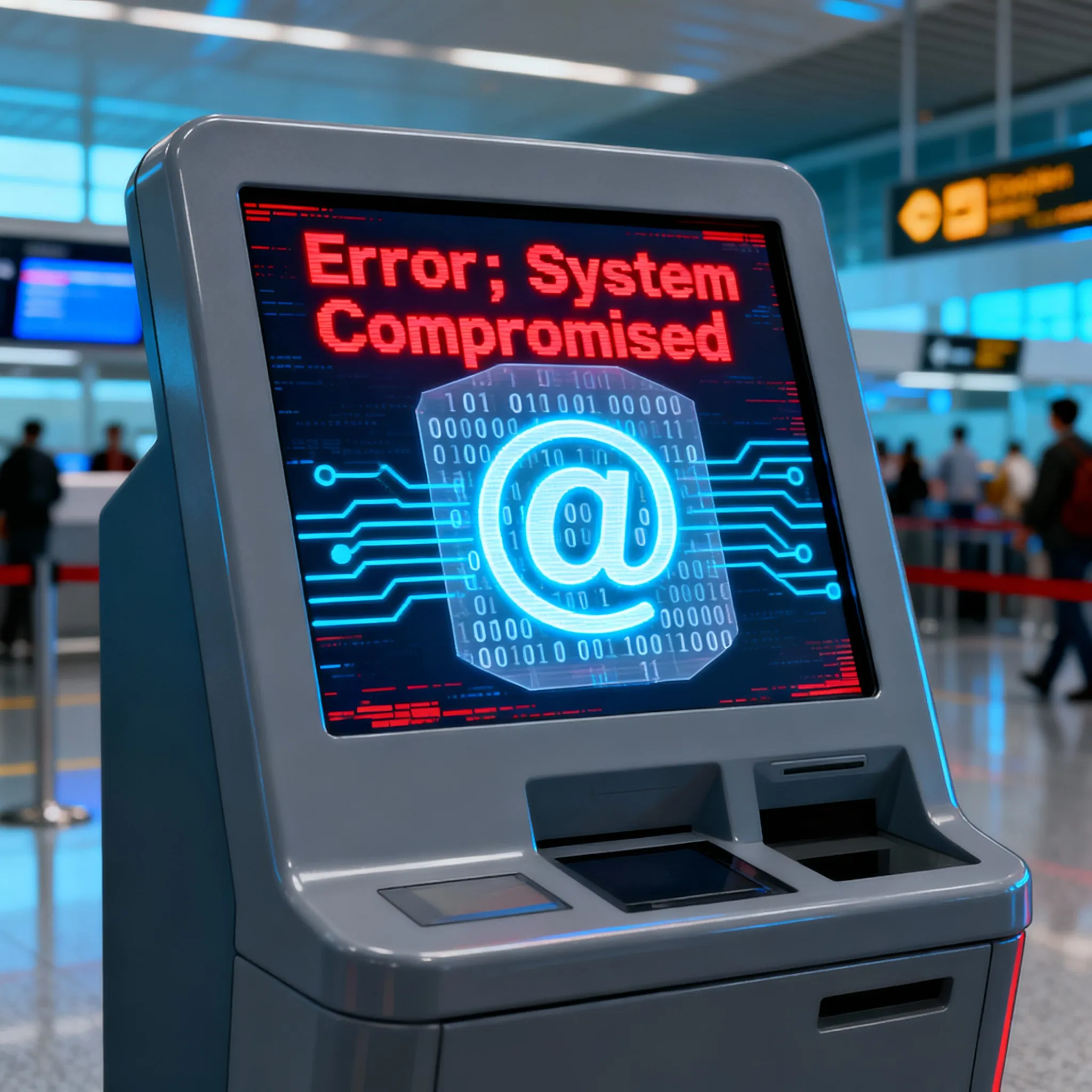Cyberattack Strikes European Airports, Halts Automated Check-In

Lead: A cyberattack on the check-in and boarding software provider Collins Aerospace disrupted operations at Heathrow, Brussels and Berlin airports on Saturday, causing multiple flight delays and cancellations across Europe.
Nut Graf: The incident exposed vulnerabilities in third-party aviation technology, forcing airports to revert to manual passenger processing and straining staff and passengers alike. Its scale underscores growing cybersecurity risks in critical transport infrastructure.
Impact and Response
- Widespread Delays and Cancellations: Brussels Airport reported at least 10 flight cancellations and 17 delays exceeding one hour, urging travelers to verify flight status before departing for the airport.
- Manual Operations: Automated check-in kiosks and baggage drops were disabled, with staff instructing passengers to queue for manual check-in and boarding.
- Affected Hubs: London’s Heathrow - Europe’s busiest airport - and Berlin’s Brandenburg Airport confirmed similar disruptions, deploying extra personnel to assist passengers and minimize queues.
- Unaffected Airports: Frankfurt and Zurich airports reported no impact, as their operations rely on different service providers.
Technical Details
Collins Aerospace, a unit of RTX Corp., supplies the MUSE software used by numerous airlines for electronic check-in and boarding. The company acknowledged a “cyber-related disruption” to its systems late Friday, September 19, and is actively working to restore full functionality.
Passenger Guidance
- Flight Verification: Confirm departure status with airlines before traveling to the airport.
- Arrival Times: Plan for extended check-in periods; arrive at least three hours before long-haul flights.
- Assistance: Seek help from additional check-in staff deployed at affected terminals.
Broader Implications
This attack highlights the growing threat of cyber intrusions targeting aviation technology. Experts warn that reliance on centralized third-party systems can create single points of failure and call for strengthened cybersecurity protocols across all airport technology platforms.
Categories
Autos and vehicles Beauty and fashion Business and finance Climate Entertainment Food and drink Games Health Hobbies and leisure Jobs and education Law and government Other Politics Science Shopping Sports Technology Travel and transportationRecent Posts
Tags
Archives
08/19/2025 (3) 08/20/2025 (40) 08/21/2025 (27) 08/22/2025 (22) 08/23/2025 (4) 08/24/2025 (21) 08/25/2025 (30) 08/26/2025 (24) 08/27/2025 (29) 08/28/2025 (16) 08/29/2025 (9) 08/30/2025 (13) 08/31/2025 (17) 09/01/2025 (167) 09/02/2025 (124) 09/03/2025 (149) 09/04/2025 (112) 09/05/2025 (72) 09/06/2025 (169) 09/07/2025 (162) 09/08/2025 (150) 09/09/2025 (176) 09/10/2025 (194) 09/11/2025 (194) 09/12/2025 (186) 09/13/2025 (207) 09/14/2025 (159) 09/15/2025 (175) 09/16/2025 (198) 09/17/2025 (196) 09/18/2025 (196) 09/19/2025 (207) 09/20/2025 (129) 09/21/2025 (4)